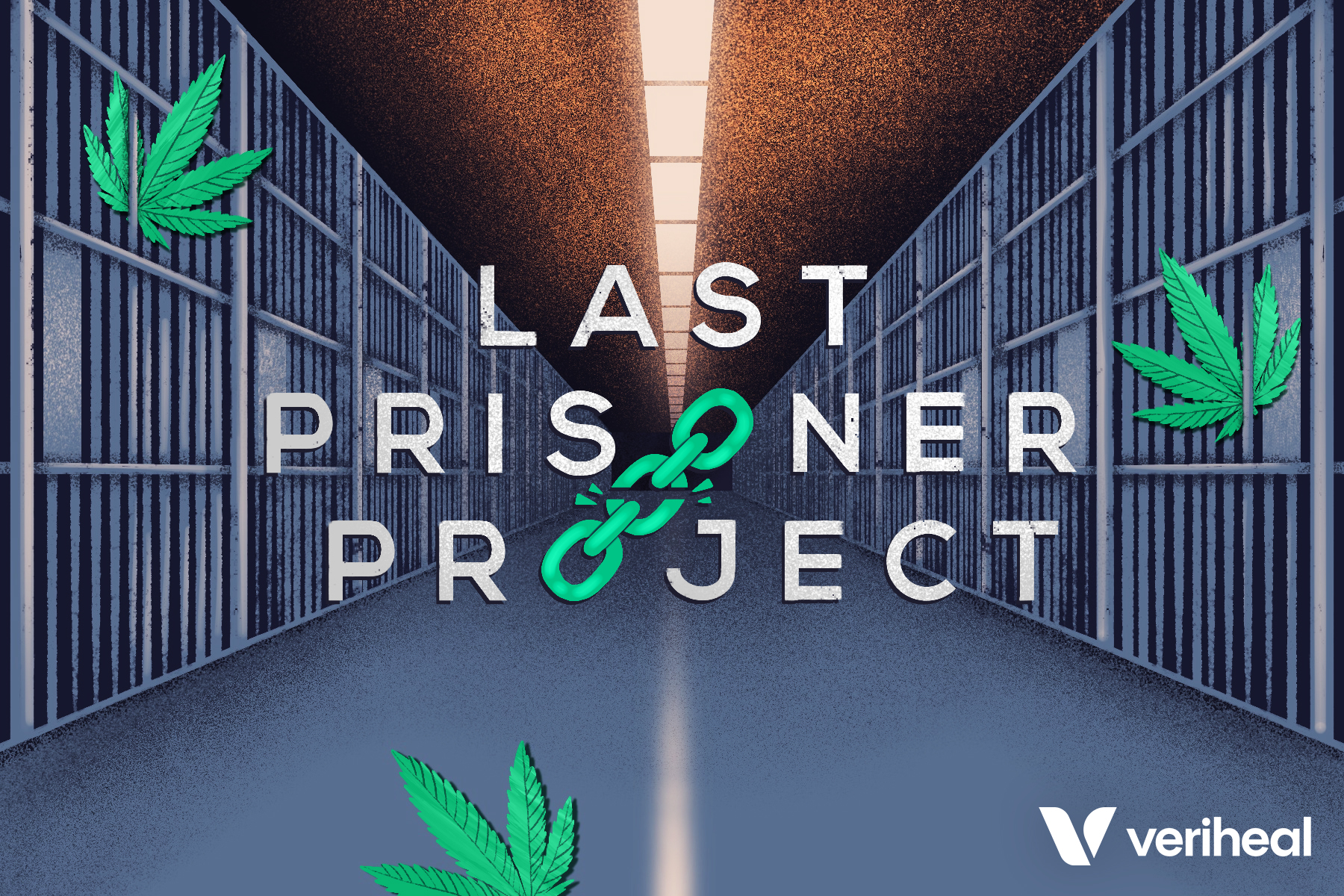In the United States, over 40,000 prisoners face years, decades, and even life in prison on cannabis-related charges. The Last Prisoner Project is determined to set them free.
Founded in 2019, the Last Prisoner Project (LPP) is a nonprofit organization that works to achieve cannabis criminal justice reform. With a team of attorneys, criminal justice reformers, and other advocates, the organization endeavors to reform cannabis law and policy. LPP operates through legal intervention, advocacy campaigns, and policy change to not only release prisoners but to defeat the injustices of cannabis prohibition through support for policies that redress the harms inflicted by the failed U.S. war on drugs.
While tens of thousands of prisoners endure incarceration for activity that is no longer a crime, thousands of people profit from those same activities. LPP sees it as incumbent upon those who benefit from the legal cannabis industry to work toward restorative justice. The movement of many U.S. states to end the criminalization of cannabis has given rise to a lucrative new industry that is worth over $10 billion. Meanwhile, U.S. taxpayers pour around $6 billion annually into a crusade that fails to reduce cannabis consumption and perpetuates the mass incarceration of non-white individuals.
Despite the fact that both white and black populations consume cannabis at roughly the same rates, people of color are disproportionately affected by cannabis prohibition laws. Black individuals are nearly four times more likely to be arrested for cannabis-related charges, and people of color account for around 84% of the over 2,000 cannabis-related federal sentences from 2018. White men, on the other hand, make up an overwhelming majority of cannabis industry executives benefitting from legalization.
Freedom Is a Complicated Process
In 2022, President Biden pardoned federal charges involving simple marijuana possession, but Biden’s actions ultimately released 0 federal prisoners, because none of the offenders to whom Biden’s proclamation applies are still incarcerated. Plus, a federal pardon does not remove individuals from custody. Release can only be achieved with commutation, which is different from a pardon. Moreover, a federal pardon does not remove the conviction from an individual’s criminal record—only expungement can do that—so individuals who receive a pardon will not have the conviction removed, which means that these individuals can still be denied employment, housing, and other benefits because of their criminal records.
Why You Should Get Your Medical Marijuana Card
Veriheal has satisfied millions of patients nationwide by giving them access to these benefits
- Larger purchase limits
- Peace of mind
- Enhanced legal protection
- Access to higher potency strains
- Save up to 25% on cannabis purchases
- Skip the line at the dispensary
18 U.S. states offer expungement opportunities to remove cannabis-related charges from criminal records, but many individuals lack the legal knowledge and resources required to benefit from these programs. Expungement is a legal procedure that erases a conviction from a person’s criminal record. However, complications are inherent to the process—individuals must petition officials, acquire and review legal documents, complete a lengthy application, appear in court, pay fees, and more.
On top of these requirements, different states have different processes for expungement, and different individuals have unique circumstances that must be evaluated on a case-specific scale. These factors make expungement difficult to achieve without a lawyer. For individuals with criminal records for cannabis-related charges, the expungement process is time-consuming, confusing, and expensive.
The federal act also does not impact any people with state convictions. Unfortunately, most cannabis-related convictions take place on the state level, so state-initiated action is required to effectively address the harms of cannabis convictions. Only individual states can provide relief for people who suffer from the barriers imposed by cannabis-related criminal convictions through programs that grant clemency, record clearance, and resentencing. (Contacting your governor is a simple way to contribute to the effort.) Biden’s federal action is a progressive movement, but state involvement is critical to securing freedom for the vast majority of cannabis convicts.
A Multidimensional Approach
There is a lot involved in achieving freedom for cannabis prisoners, which is why the Last Prisoner Project attempts to rectify the system from numerous angles. The organization prioritizes three main initiatives that collectively accomplish freedom for cannabis prisoners:
- Prisoner release: working to release prisoners incarcerated for non-violent cannabis-related crimes through state and federal clemency programs and advocating resentencing policy and legalization campaigns
- Record clearance: advancing the implementation of criminal record clearance programs to ensure prisoners’ freedom from barriers to employment, housing, and other benefits when they are released
- Re-entry support: providing professional, financial, and educational resources to help released prisoners rebuild their lives and reintegrate into their communities
Release from imprisonment is one of many elements involved in freeing cannabis convicts. By working to clear criminal records, end prohibition, and rebuild communities, the Last Prisoner Project endeavors to liberate individuals from the numerous other barriers imposed by cannabis criminal convictions.
It is important that those of us who benefit from legalization keep in mind that the legal prohibition of cannabis still persists in many states, and it is unfairly burdening people from vulnerable communities. If you are on the fortunate end of the legalization effort, please consider taking action to support the thousands of people suffering the injustices inflicted by the criminalization of cannabis.
Author, Share & Comments
















